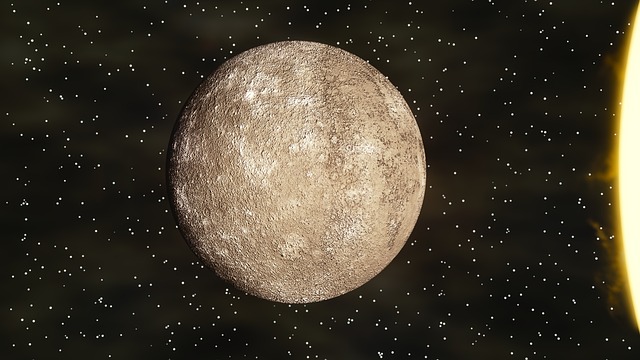
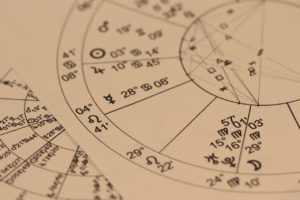
About a week ago, astrologers reported that Mercury went into “retrograde”. Mercury retrograde is a period of about three weeks when, from the Earth’s standpoint, the planet appears to be moving backwards. Despite there being no solid scientific evidence of the accuracy of astrology, the phenomenon of Mercury retrograde feels real even to people somewhat skeptical of astrology.
According to those who believe in the existence of Mercury retrograde, the planet appears to go backwards for three weeks roughly three times per year. When this happens, matters related to transportation and communication will often go wrong, if not haywire. Misunderstandings, computers breaking down, and travel plans gone awry are reportedly caused by Mercury retrograde. Based on my own experience and that of others, Mercury retrograde might be real even when it isn’t real.
Astrology then and now
Complex charts aside, the vast majority of astrology was originally based on a model of the Solar System and the Universe popular in classical-era Greece (500-400 BCE) that put the Earth in the middle of everything. Despite some sun-centric thinkers among the Pythagoreans (a rather fascinating group of people) mainstream Greek philosophy believed that the Universe centered around the Earth. Mainstream Greek philosophy also generally believed the Earth to be spherical in shape and that the Universe revolved around the Earth. Despite this earth-centric error the ancient Greeks made many remarkably accurate calculations about the stars and planets.
From the viewpoint of Earth, every planet’s orbit seems to stop and then momentarily reverse course before correcting course and continuing on its orbit. When the earth-centric theory was disproved for good with the Copernican Revolution, scientists realized that planets had elliptical orbits around the Earth, that was constant and had no interruption. They realized that the retrograde orbit was an optical illusion caused by the relationship between the in Earth’s orbit and the other planet’s orbit.
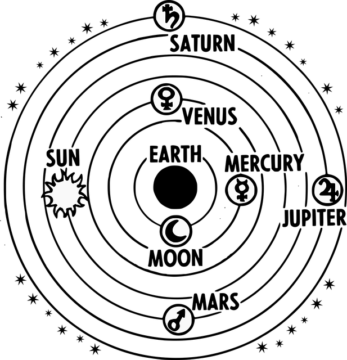
While astrologers today would not dispute the model of the Universe accepted by mainstream science, some of the implications of the old model still exist in astrology. Astrologers might claim that the appearance of Mercury from Earth is still the most relevant issue. But can they really argue that the assumptions based on the Earth-centric model of the Universe still hold in the new, science-backed model of the Universe?
Of course there are many types of astrology around the world, and even among Western astrologers, a few have changed their calculations to adjust to a heliocentric Solar System model. In 2015, an article in the Minneapolis Star-Tribune four years earlier created an uproar on the Internet when it published a scientist’s claim four years earlier that most people’s astrological signs were about one month off due to axial precession. However, the ancient Greeks had the last laugh on this viral tidbit because they’d actually been the ones to discover axial precession and had included it in their calculations despite not knowing that the earth wasn’t the center of the Universe. The modern scientist quoted might have been accurate about sidereal astrology, which is based on the position of the constellations and is most commonly used in Hindu astrology. But most Western astrology has relied on a tropical model based on the position of the planets. As such, claims that the Zodiac had shifted were labeled “false” by Snopes.com, though Snopes did not pass judgment on the accuracy of astrology in that article.
In any case, Western astrology assigns certain characteristics to a pie slice of the Solar System. Each zodiac sign makes up 1/12th of the solar system, though they are no longer the part of the solar system associated with the constellation. Given, though, that the planets are closer to the Earth than the constellations, it would make more sense that the position of the planets would have more of an effect on Earth than the constellations. But back in ancient Greece, no planets beyond Saturn were known to exist.
What does the planet have to say about this?

Still, it’s Greek legends which give life to the constellations, which, like Mercury retrograde, are themselves somewhat of an illusion. Yet we are expected to believe that these Greek legends have impact on our personality by virtue of the part of the Solar System we were born in.
In the case of Mercury, our name for the planet is based on the Roman name for the Greek god Hermes. Hermes was consider considered the messenger god, and also the god of travel.
Think about it. The Greco-Roman pantheon of gods is, at the most, 3,000 years old. Most of the planets in the solar system are in the neighborhood of 4,500,000,000 years old. If Mercury’s age was the equivalent of one day, the Greco-Roman pantheon upon which would have come into existence within the last one-tenth of the last second of the day.
As such, the ancient planet that humans call Mercury could care less about the pantheon of gods developed by an alien species from a couple obscure peninsulas on a small continent two planets away. If someone tried to talk to the planet Mercury about its retrograde motion and its impact on the travel and communication of a species two planet away, the ancient planet’s response would likely be, “Wait, what?”
The structure of the Solar System
Furthermore, in the way that the Solar System is divided up, there is a certain symmetry to the astrological signs which doesn’t seem to correspond to reality. For example, each of the slices of the Solar System pie are given characteristics of elements–Fire, Earth, Air, and Water— and qualities consisting of either Cardinal, Fixed, or Mutable . Each astrological sign is given a unique combination of elements and qualities, but if you look at them on the chart, they seem to be neatly symmetrical and equally spaced.
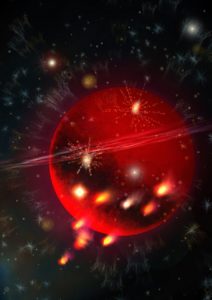
But the more we learn about our Solar System, the more complex and messy it really is. We now know that the gas giants Jupiter, Saturn, Uranus and Neptune have qualities that make them very different from Mercury, Venus, Earth and Mars. Recent decades of research has pointed to the discovery of a wide array of Trans-Neptunian Objects. Then we have the Asteroid Belt in which its largest known object, Ceres, was once classified as a planet, then an asteroid, but which now has been promoted to “dwarf planet,” the same status as to which Pluto was demoted to in 2006. This shift was based upon the discovery that there might be more than 200 hundred such planets in the Kuiper Belt and 10,000 outside the Kuiper belt. Many of these have asymmetrical orbits.
As such, can astrologers really have an accurate picture of the Solar System, given that we now know it to be far bigger and more complex than the ancient Greeks knew it to be?
Yet many people swear by astrology, and even those who don’t believe in it still notice some remarkably similar properties identified by astrology.
My personal experience with astrology
I believed in astrology more when I considered myself to be a practicing pagan in the early 1990s. In fact, I astounded pagans and non-pagans alike with my uncanny ability to accurately guess a person’s astrological sign. I remember a party I went to where I guessed the correct signs with six people in a row! Sometimes it was intuition—I remember looking at a woman and my mind saw an image of a lion’s head, so I correctly guessed Leo. Other times, it was me just guessing based on what I perceived their element and their quality to be. Oddly, when I moved away from paganism to a more monotheistic religion, my ability to guess diminished to the point that my accuracy was less than what might be divined by chance.
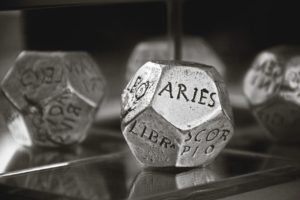
Yet, going back to the 2015 controversy over astrological signs allegedly, having shifted, I remember investigating this claim by reading the sign I supposedly really have. I was born smack in the middle of Cancer, and I have often found its (admittedly vague) description of me to be fairly accurate. So I looked up Gemini, which I supposedly “really” was, and read the description of people under that sign. The first few paragraphs were inconclusive, then later on I found myself saying to myself, “Not really,” “no way,” and finally “hell no!”
So when people report cars breaking down, computers crashing, printers failing, and misunderstandings all over the place during Mercury retrograde, does that mean that this phenomenon is real?
I think the answer is yes and no. I think the phenomenon of Mercury retrograde is real, but not for the reasons astrologers think.
Mercury retrograde and other astrological phenomena are real only because so many people believe it to be real.
My experience is that these thoughts are so powerful that they can even influence people who might not share those thoughts. And so, after I stopped considering myself a pagan and stopped believing in astrology, I discovered after a period of time that this Mercury retrograde thing still appeared to be real. There would be instances where something Mercury retrograde-like would happen, causing me to look online, and then discover that Mercury was indeed in “retrograde.” There were, of course, a few times when this did not happen, and a few times where Mercury retrograde was approaching within two or three weeks but had not yet occurred.
After a while, however, I felt the need to observe this phenomenon and prepare for it, and doing so has often resulted in a lot of positive outcomes. For example, Mercury retrograde appears to be a great time for reflection as well as finishing unfinished business. I have taken full advantage of this time to my benefit. Maybe it is just in my head, but it’s also in the heads of millions of other people.
Like ghosts that humans around the world have seen for millenia, thought waves and their power on the surrounding environment have not been directly observed or quantified by the scientific community. But it doesn’t follow that ghosts or thought waves don’t exist. We just haven’t proven scientifically that they exist. Many people—including many scientists—subscribe to the fallacy that what hasn’t been proven scientificallydoesn’t exist. For this reason, many scientists assume that the Universe is very empty because they think that all that we have thus far found is everything that exists.
The value of mystery
We modern humans have become so overconfident in our technological prowess that we have forgotten about the value of mystery. It is okay sometimes to not know for sure whether something exists or not. It is much wiser to base your actions on uncertainty than false certitude. Agnostics seem comfortable with this way of thinking, whereas some atheists’ belief in the non-existence of God is so strong that their fervor and self-righteous thinking begins to resemble that found in fundamentalist followers of religion.
It is better to accept that some things are a mystery rather than express certainty about a belief that is probably at least partially false. It’s fine to believe something but there’s a difference between belief and unfounded certitude. By calling something a belief, you are stating your own sense of what you think is likely true, but you also allow for the possibility of not being 100% correct. The religious people who state with absolute certainty about what will happen to them when they die are making themselves look foolish. They really don’t truly know—they just read something, decided it was the truth, and then closed their minds to the possibility that something else might be true. This in and of itself is sad, but then when they push hard to make other people share that same worldview, disaster can only result.
So is Mercury retrograde real, real in a different way than previously thought, or is it the product of a large number of misinformed people? I’m going to say “quite possibly” to all three statements and then walk away with a smile. Anyone who is honest with themselves and the world around them should do the same.
